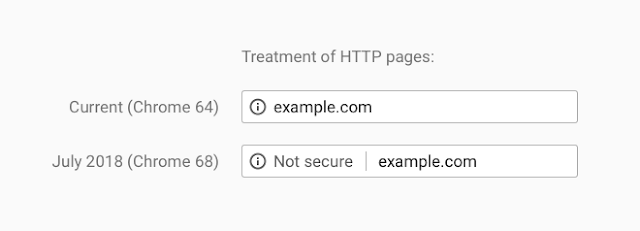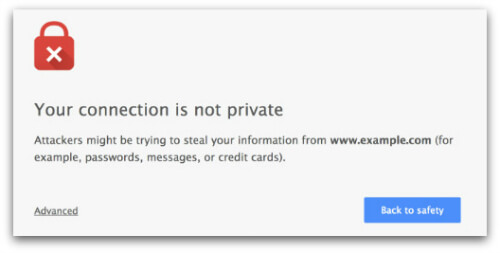Search engine optimization can be daunting for many, especially as this industry changes frequently. Many business owners recognize the value and importance of SEO, but are unsure where to start.
Often wondering if they should hire an SEO company, or try and learn SEO on their own and apply it. It can be conflicting. If you hire a company, it’s giving up some control and trusting an individual or firm to take the lead in online optimization to improve your website’s visibility.
If you learn on your own, you may feel there’s more control. But the sacrifice of doing SEO on your own is time, dedication and motivation. SEO is not something you can take one course on, apply it, and leave it alone.
There’s a big misconception about SEO and that it’s about sprinkling in keywords and then your site will move to the top of search result pages and voilà, you’re optimized and surpassing your competition. There’s so much more that goes into SEO. Here are some top misconceptions about SEO that exist today.
1. Content is all you need

Yes, content is very important when it comes to SEO. We don’t want to minimize that. However, it’s important to make sure your content is valuable, relevant and useful to your users. Content also needs links (not just any links, but quality links).
At one point several years ago, a tactic in SEO was to gain as many links as you could. The idea was, the more links you gain, the higher the rankings. Google found people abusing this practice where link farms were created as to have thousands of links point to a website. Google cracked down on this practice and have thrown penalties on sites that participated in link farms.
2. Website speed isn’t the most important thing when it comes to optimization
Sure, maybe site speed is not the #1 most important element when it comes to SEO, but it certainly isn’t #25 either. In fact, there are over 200 factors that go into how a website is ranked, with site speed being one of them.
Today, more and more of us are using our smart phones to look things up on the web. Don’t you hate it when you think you’ve found the site that has the answers you need, only to find the site taking forever to load? It’s frustrating. So you head back to the search results to find the next best option.
Having a fast-loading page is important when delivering results to potential customers. Here are some free speed testing tools you can use to test the speed of your webpages:
Free website speed testing tools
- PageSpeed Insights by Google
- Pingdom
A faster website not only provides a better user experience, but also allows Google Bots to crawl the site faster.
3. Keyword Density
Keyword density is the percentage of times a keyword or keyword phrase appear in comparison to the total amount of words on a webpage. At one time, keyword density was a tactic used to measure the relevancy of your content compared to the keyword or keyword phrase you were seeking to rank for.
Many people would ask what the appropriate keyword density percentage was, and there was never really a clear, defined answer. Some would say 1-3% while other would say 4-6%.
You can, however, put too many keyword or keyword phrases on a page, which could be flagged as keyword stuffing. The best advice here it to not be manipulative with your content and placement of keyword and keyword phrases.
4. Your site must be submitted to be indexed and crawled
We cannot tell you how many times we’ve been contacted to pay a fee to submit our website to Google in order for it to be indexed. Alert, alert! THIS IS A RED FLAG.
Google never requires you to pay to be in the organic search results.
You can, however, submit your URLs. An appropriate time for this could be when you’ve created new content and want search engines to come back to your website to pick up that new piece of content or re-evaluate a page.
Bottom line, you never need to pay to submit your website in order to be found. Once a site is launched and live, Google and other search engines are sophisticated enough to find your site and crawl it. You can see how Google crawls your website and submit/fetch URLs with Google’s free tool, Search Console.
5. More pages means more possibility to rank
You may think having more content will yield a higher possibility to rank. But hold up there. Google is about providing its customers the best results based on their search query and intent. Just because you have more content doesn’t mean it will be more relevant to the user’s online search.
An important piece to keep in mind about content is that Google prefers quality over quantity. So be sure you’re writing with the intent to provide useful information and not “fluff” just for the sake of getting content out there.
6. My site looks great on desktop, why wouldn’t it on mobile?

Desktop and mobile are two different animals. People search differently on a mobile device than they would on a desktop device. Google now indexes a website’s mobile version first (Mobile-First Indexing Update) as Google views the mobile version of your site as the primary version of your website.
If your website is not mobile friendly, it can harm your SEO efforts. Today, online users expect to be greeted with a mobile site when exploring the web on their mobile devices. If the site is not mobile friendly when searching on a mobile device, it provides a poor user experience.
Is your website mobile friendly?
Free mobile friendliness test
- Mobile-Friendly Test by Google
7. Websites don’t need to be HTTPS

Actually, yes, they do. Before, we would mainly see websites using HTTPS (https://) if there was transactional data happening on the site, such as purchasing a product from a website and using credit card information.
If you do a Google search, you may now notice that many of the top results use “https://” over “http://”.
In late 2016, Google announced that its Chrome browser would flag sites that did not use “https”. Effective July 2018, Chrome marks non-HTTPS websites “not secure” and even marked some sites as “unsafe”.

image via Chromium Blog
Many websites that didn’t convert to HTTPS faced an increase in bounce rate as Chrome was flagging these sites as “unsafe” and giving the user the option to “Go back to safety” (i.e. back to the search result page.)

8. The goal of SEO is to rank #1
Sure, maybe you rank #1 for “the wheels on the bus go round and round” but have you stopped to consider if it’s the right traffic you want to go to your website? Is there intent behind the query you want to be found for?
Positions on search engine result pages fluctuate hourly. You may be in position #11 one day and the following day be in position #6. What’s important to look at is if your search positions are improving, and ultimately getting to the first page of Google.
Better yet, Google offers other resources in its search results called Featured Snippets, such as Answer Box which provides answers to questions asked, Map Pack for local searches, Image Pack for optimized images, etc. (See #3 SERP Features)
9. SEO is something your IT or Web Developer can handle
Many think someone who is savvy with computers are the people for the job for SEO. Some also think a web developer can carry out SEO services, and while *some* web developers offer a basic SEO service, it will likely be for “technical optimization” while the site is being built.
Keep in mind that all web developers are not created equal. Experience levels vary and it’s important not to skimp out on web development services when thinking long-term with your business. Involving an SEO company or consultant while your site is being built can also be very beneficial. Having an SEO on board while the site is being built will ensure the foundation of your website is strong. And don’t be afraid to ask questions!
So in short, website development and SEO are not IT. Experience levels also differ for IT professionals and it’s highly likely they know very little about SEO and web development.
10. It’s important to have keywords in your website domain
At one point in time, some SEOs thought they could manipulate Google to get high amounts of traffic in a short period of time by buying keyword specific domains. And at one point of time, this tactic worked well until Google announced the Exact Match Domain update, which hammered down on keyword-specific domains and lower quality websites.
SEOs and companies that used the EMD tactic saw traffic drop when this update rolled out. This doesn’t mean having keywords in your domain still can’t be beneficial (i.e. SmithSEOServices.com), but it’s important to not overdo it or be manipulative.
SEO myths in a nutshell
Sometimes trying to get those quick and easy wins in SEO stem from harmful myths. SEO is a quickly changing and ever-evolving industry. What might be right and true today in the SEO industry may become a myth over time. Especially as Google continues to crack down on spam and low-quality sites.
If you are handling SEO on your own, the best thing you can do is continually educate yourself. If you’re considering hiring an SEO company or consultant, be sure to ask questions as not all SEOs are created equal.
Please share this blog if you found it helpful or write a comment or question in the comment section below.

0 Comments
Leave A Comment